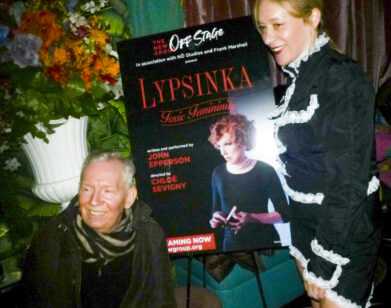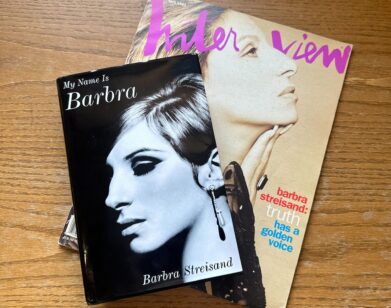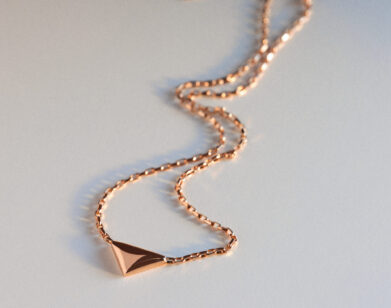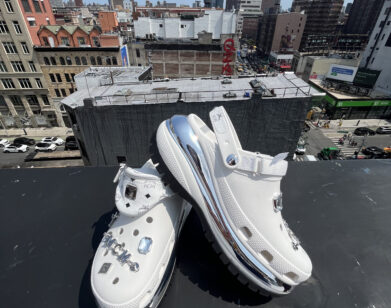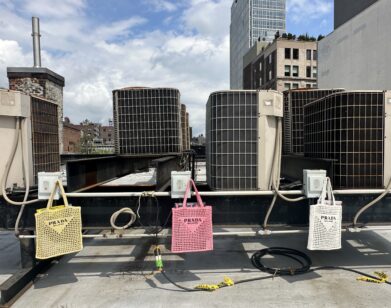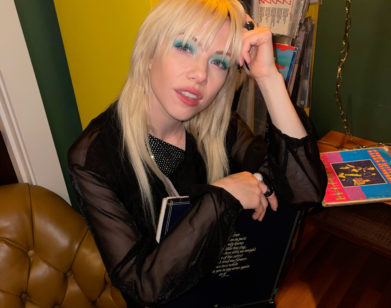In Praise of the Soundtrack of the Met’s Camp Exhibit
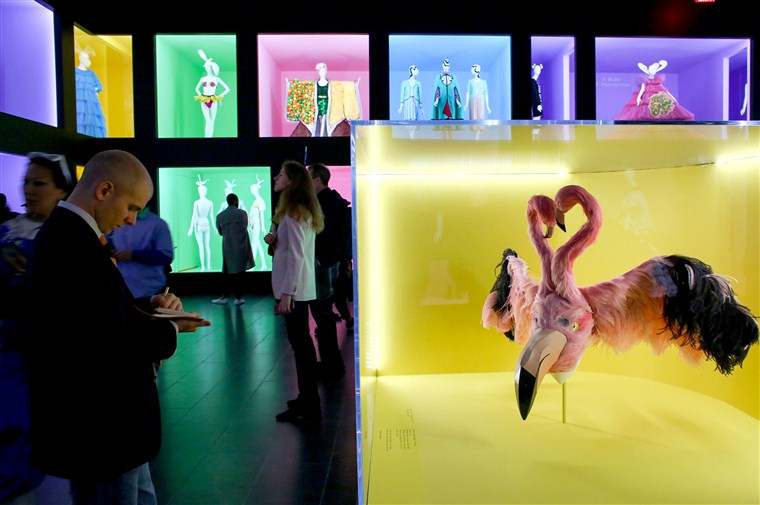
Wandering amongst the rainbow windows of this year’s Costume Institute exhibit, Camp: Notes on Fashion, I was hit by a cacophony of voices — among them a British-tinged one jubilantly, repeatedly, echoing the phrase, lifted from artist Philip Core: “Camp is Judy Garland!” As a sort of aural backdrop flooding the entire wing, Garland’s famed ballad “Over the Rainbow” played on as attendees made their rounds, its melodramatic strings and desperate longing managing to overwhelm the feathers, heaps of tulle and fig leaf Beau Ideal leggings on display. While the notion of camp is a point of debate for some, or sincere confusion for others, at the Andrew Bolton-curated exhibition, it was the noise that rung campiest.
Camp is an aggressively visual mode, sure, but its power can transcend kitschy playthings and assume a form so translucent, so unnerving, that it actually surrounds you. And in the case of my time at the Met, it can even crescendo with the haunting lullaby of a drugged-out Kansas girl. While the show was prettily packaged, coated almost entirely in millennial pink and topped off with an adjoining pop-up gift show lined with rows of catalogs, its sonic collage was an exercise in visceral ugliness. As Sontag wrote in her seminal essay that inspired the show, camp, in some cases, can be described as “the sensibility of failed seriousness, of the theatricalization of experience.” Walking through the exhibit’s three zones, each illustrating a different type of camp as defined through aesthetic history, the omnipresent loop of “Over the Rainbow” became entrenched in my psyche. At once eerie and playful, the self-referential was winking, loudly, with the thing itself.
In the portion of the exhibit titled “Sontagian Camp,” Garland’s croons collided with the clickity-clack of a typewriter that spilled camp musings onto a monitor circling the room. The audiovisual symbiosis seemed to be screaming the siren song of academia — so simultaneously self-serious and glib that it most certainly must be camp. Populated by Tiffany lamps, Marie Antoinette, and mod dresses lifted from the Campbell’s Soup cans of Andy Warhol, I was implanted into what felt like the soundtrack of a film about writers. Because writers are nothing if not monkeys, punching away at their chosen tool, cocking their heads as they peel their bananas and pause to ruminate on whether, in fact, this is camp? As I continued to float among the Mugler and Moschino, I was continually enmeshed in a haunting sonic tapestry. Where there could’ve been ABBA, where there could’ve been Cher, Streisand, Donna Summer, and countless others, there was Judy, still. Not just her crooning voice, but her name, proudly, declaratively: “Camp is Judy Garland!”

